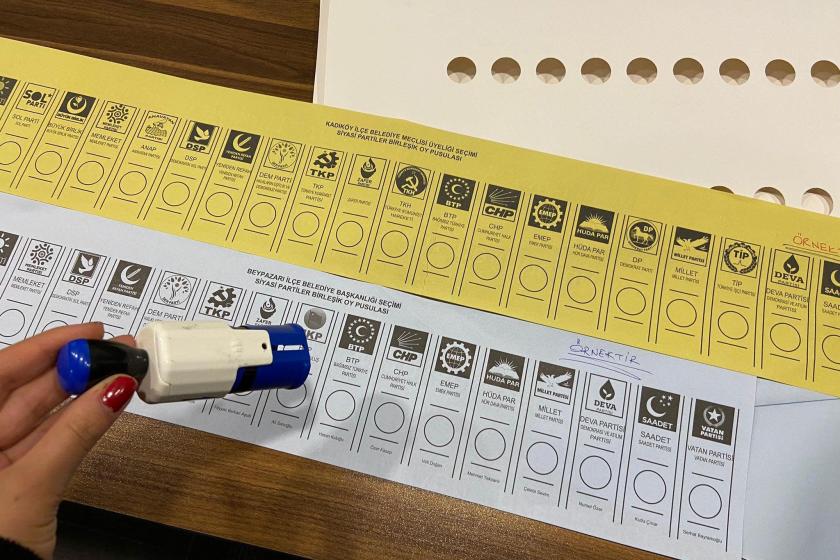News of Trump’s decision to withdraw his troops from Syria following the phone call he made with Erdoğan seems to have created an atmosphere of a great victory on the ruling front and in its media. “Experts” strutting their stuff in the media speak of this decision being the result of Turkish decisiveness and of how Turkey showed its strength to the US. We will obviously be regaled by comments of this nature for a while more.
However, let me note straight away that Israeli Prime Minister Netanyahu says the US notified them of this decision at the start of the week. That is, prior to the Trump-Erdoğan call held the other day. Moreover, Trump putting Erdoğan in the picture about the withdrawal plan can be attributed to, not as imagined Turkey’s strength or pressure, but if anything the regional role that Trump (the US) wishes to assign to Turkey in association with this plan. For, there is but one power that could play a decisive role in Trump taking such a decision and that is its rival in the struggle for domination in the region – Russia - and it was known that negotiations had been taking place for some while between the US and Russia over a political solution in Syria.
As such, let us recall the developments underlying this decision before turning to the possible effects on Turkey’s regional politics (the Middle East as whole and Syria in particular) of Trump’s decision to withdraw his Syria-based troops.
First of all, Trump has been speaking of a wish to withdraw his Syria-based troops since the day he came to office – and he reiterated in March this year that their withdrawal from Syria was imminent. However, coinciding with this statement, France sent troops to the region and a joint US-French-UK air strike targeting Syria was staged in April. For, on the heels of every one of Trump’s announcements about withdrawal from Syria, an announcement has come from the Pentagon that the business in Syria is not over yet. Following Trump’s most recent announcement, a similar statement emanated from the Pentagon. But this time, it was announced that Trump’s withdrawal plan had been put into action and the process of withdrawing from Syria would be completed in anything from sixty to one hundred days. A further important point here of which sight must not be lost is that the withdrawal by the US of two thousand troops stationed in the Kurdish region in Syria will not seriously alter the US’s capacity to intervene in the region, because the US’s interventions in this region are actually based on air operations anyhow and the US continues to keep in place military forces that can conduct such interventions in other locations (apart from İncirlik, Jordan, Iraq, UAE, Qatar, Saudi Arabia, Bahrain and Oman).
On the other hand, statements made on the front between France and the UK, the US’s partners in the region, declaring this decision “premature” show that, in spite of this decision, other developments may be on the cards as dictated by Western imperialists’ regional calculations.
As I noted at the outset, the negotiations he conducted with Putin (Russia) played a pivotal role in enabling Trump to take this decision. It will be recalled that an announcement was made at the Trump-Putin summit held in Helsinki on 16 July that agreement had been reached on a political solution to the Syrian problem. But, not only were details of this agreement not forthcoming but inflammatory comments between the two countries, especially over Idlib and east of the Euphrates, continued.
However, limiting Iran’s military force here constitutes Trump’s priority in consenting to a political transition in Syria and ever since the Helsinki summit Russia is known to have taken/prompted various steps entailing Iran withdrawing its military presence from border regions including regions Israel was uncomfortable with (especially in the south of Syria). It can thus be said that Trump’s decision was not independent of the negotiations conducted and the steps taken to this end.
Well, how will the withdrawal decision and its potential consequences affect Turkey’s regional policies?
Let us start with the most burning issue. One of the interpretations most frequently offered is that no obstacle now remains to Turkey’s potential operations east of the Euphrates in the wake of the US’s withdrawal decision. However, it was the US presence here that inspired Russia to make statements that the fundamental threat in Syria was east of the Euphrates and to encourage Turkey to intervene. So, under conditions in which the US has withdrawn, Russia (and undoubtedly Iran and the Syrian regime) will not wish for Turkey to intervene here. Over and above this, it is certain that the status of the regions held until now by Turkey and the FSA groups that it supports from the Jarabulus-Azaz line to Afrin in order to use NATO-member Turkey to counter the US will come into debate under circumstances in which the US has withdrawn. It will furthermore come as no surprise if the Erdoğan regime is pressurized into activating the inactive process of the Turkish-facilitated liquidation of the jihadist groups in Idlib.
So, just as the US withdrawal will not as supposed make it easier for Turkey to intervene east of the Euphrates, it will also initiate a process in which Turkey’s military presence in Syria comes into greater debate.
As with limiting Iran’s forces, another matter over which agreement is said to have been reached at the Helsinki summit between Trump and Putin relating to the political transition in Syria is that of Syrian Kurds having a political status in the new Syria. In fact, both the US and Russia, even if they occupy opposing positions, have for some time been saying that the Kurds are a force that cannot be discounted in determining Syria’s future. Hence, while its borders are currently a matter for debate, the attaining by the Kurds of an autonomous structure in the process of drafting a new constitution in Syria whose start is heralded for 2019 is a situation the US-Russia agreement can be expected to usher in.
It hardly defies prediction that the administration in Turkey will do all it takes to circumvent this. However, it should not be overlooked, either, that Turkey will be unable to find the room for manoeuvre it once had in the new process that accompanies the US’s withdrawal.
With reference to the withdrawal decision, it is finally necessary to touch on what Trump-the US may have in mind as concerns Turkey. The withdrawal decision will not stop at freeing the US’s hand in relation to the support the US has given the Kurds, the source for a considerable time of great tension between the US and Turkey, and may also give rise to a process through which Turkey comes into confrontation with Russia and Iran, at whose side it today stands in the field. It is thus no distant possibility that Trump is banking on this decision and associated developments making it easier to draw Turkey to its side as far as its strategy of encircling Iran goes.
I will continue to discuss the US’s troop withdrawal decision and potentially associated developments here. However, I can say here and now that, just as it is not an evident victory for the Erdoğan administration, the administration’s insistence on expansionist-interventionist policies in the region will continue to serve to place/keep Turkey in a position in which it is prone to use by imperialist forces even if there is a change of plan.



